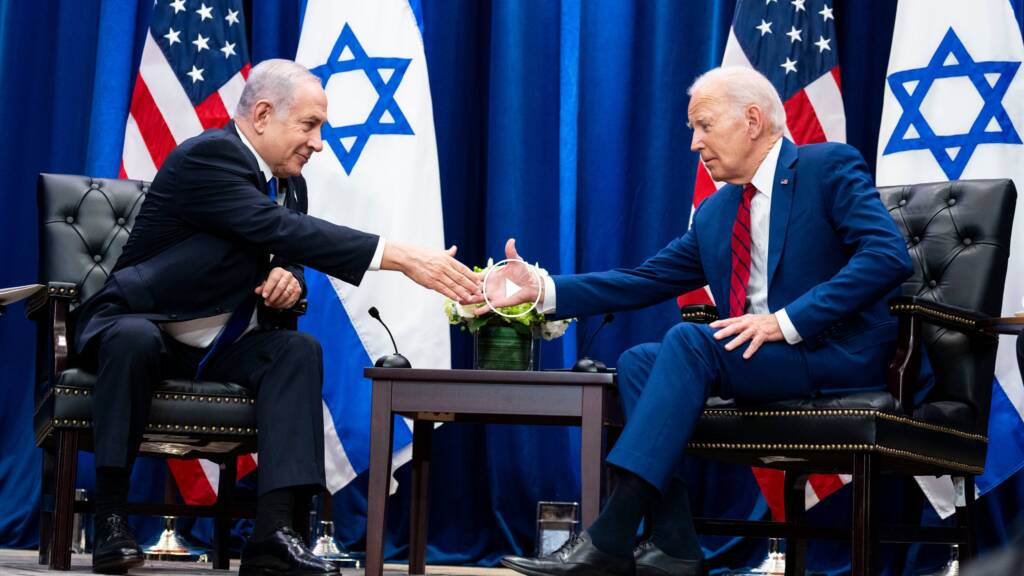The UN-backed ceasefire proposal, supported by the US, hit a snag as both Israel and Hamas refused to accept it, citing gaps, as it didn’t fulfill their crucial demands. Each side blamed the other for stalling the peace efforts. The US push for a ceasefire isn’t driven by a motive for global peace and stability but by mounting pressure both domestically and internationally, which challenges the US role as a global leader and questions Joe Biden’s leadership.
Failure to broker a peace deal could heavily impact Biden’s electoral prospects, potentially favoring Trump, who previously achieved success with the Abraham Accords.
The UN Security Council recently endorsed a ceasefire proposal for Gaza, backed by the United States. This endorsement aimed to quell the ongoing conflict between Israel and Hamas, efforts are made by the international community to put both parties under significant pressure to agree to the proposed ceasefire terms. The resolution reflects a global concern and diplomatic efforts to stabilize the situation in Gaza, emphasizing the importance of ending hostilities and promoting peace in the region. Diplomatic negotiations and mediation continue amid challenges and disagreements, including accusations and counter-claims between Israel and Hamas regarding the acceptance and terms of the ceasefire proposal.
According to various media reports, Israel accused Hamas of rejecting the US-backed plan, triggering a round of blame between the two sides. However, Hamas countered these accusations, asserting that they had submitted their responses to the ceasefire proposal. The differing narratives underscore the difficulties in negotiations and the deep-rooted distrust between the parties involved.
The United States disclosed that Israel had tentatively agreed to a three-phase plan, which included a ceasefire arrangement. Both Hamas and the Palestinian Islamic Jihad (PIJ) also submitted their responses to the US-backed draft proposal. Israel received Hamas’ response through a mediator but expressed dissatisfaction, claiming Hamas had dismissed a proposal regarding the release of hostages.
In response, Hamas affirmed its commitment to a comprehensive ceasefire but proposed amendments, including a specified timeline for ceasefire implementation and the withdrawal of the Israel Defense Forces (IDF) from Gaza. Hamas’ public affirmations of ceasefire commitments may appear positive, but criticism often centers around their actions and broader strategic objectives, which undermine peace initiatives and perpetuate conflict in the region.
Following these developments, the UN Security Council issued a call for the immediate implementation of the ceasefire, emphasizing the importance of restoring peace and stability to Gaza. Israel’s representative at the UN underscored Gaza’s future security needs and reiterated the demand for the release of hostages, highlighting the origins of the conflict which began with a cross-border attack by Hamas in October. Despite these negotiations, both Israel and Hamas ultimately rejected the ceasefire plan.
Previous attempts at a truce between Israel and Hamas involved prisoner exchanges and IDF operations to rescue hostages, reflecting the complex and ongoing nature of the conflict.
As election year looms, Biden faces increased pressure domestically to address international conflicts effectively. The prolonged Gaza conflict not only affects US international relations but also has implications for domestic politics. Voters, especially those concerned with foreign policy are scrutinising the administration’s handling of such crises. The expectation is that Biden will leverage the United States’ influence to broker peace, using diplomatic channels and engaging with allies and international organizations.
The upcoming U.S. elections are pressuring President Biden to secure a ceasefire between Hamas and Israel due to several intertwined factors. Trump, previously saw success in his normalization efforts by brokering a peace accord between Middle Eastern nations between Israel and United Arab Emirates, Bahrain, Sudan, and Morocco.
Successfully brokering a ceasefire could bolster Biden’s image as a capable and effective leader in diplomacy, which is crucial for his re-election campaign, failing to do so, will expand Trump’s vote base.
